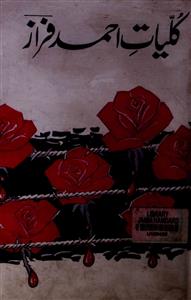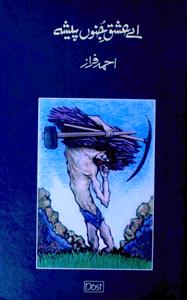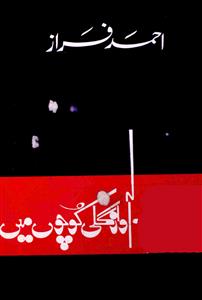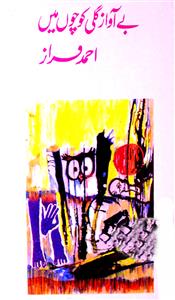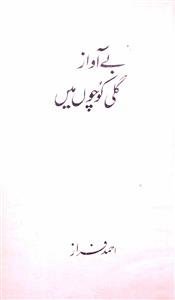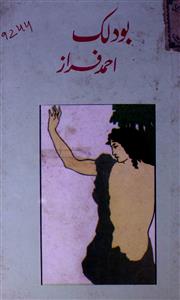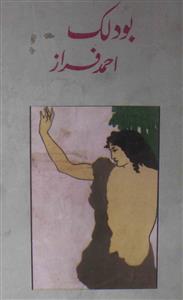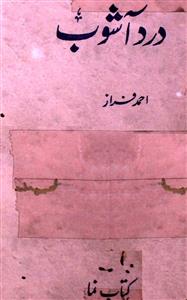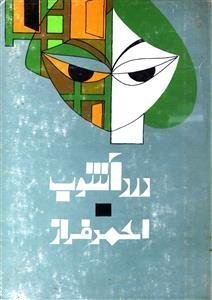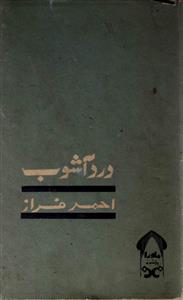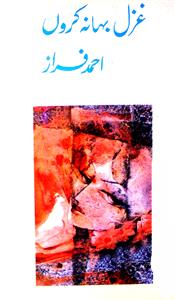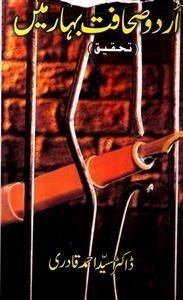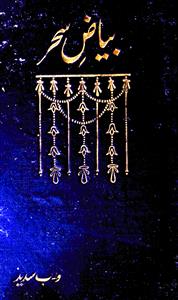 For any query/comment related to this ebook, please contact us at haidar.ali@rekhta.org
For any query/comment related to this ebook, please contact us at haidar.ali@rekhta.org
About The Book
احمد فراز کی ہمہ رنگ شاعری بلا شبہ اردو کی شعری ادب کا نقطہ عروج ہے اور اس عہد کا مکمل منظر نامہ بھی ۔ احمد فراز اردو کے ایسے خوش بیان شاعر تھے جنہیں دنیا بھر میں سب سے زیادہ مقبولیت حاصل ہوئی ۔ فراز اور ان کا کلام عالمی شہرت و مقبولیت کی جن بلندیوں کو چھو چکا ہے ، ان کے عہد کا کوئی اور شاعر وہاں تک نہیں پہونچ سکا۔ احمد فراز اپنے عہد کے ایک سچے فنکار تھے ، حق گوئی اور بیباکی ان کی فطرت کا خاصہ تھا۔ انہوں نے حکومت وقت کی بدعنوانیوں اور عوام کے ساتھ ناانصافیوں کے خلاف ہمیشہ کھل کر آوازہ حق بلند کی ۔ جنرل ضیاء الحق کی آمریت پر سخت تنقید کرنے پر انہیں گرفتار بھی کیا گیا ، وہ چھ سال تک کناڈا اور یورپ میں جلاوطنی کا عذاب جھیلتے رہے۔ فراز کی رومانی شاعری میں احتجاج اور مزاحمتی عنصر نے ان کے کلام کو عہد آفرین معنویت عطا کر دی ہے جو آنے والے ہر دور میں حق و انصاف کی آواز بن کر گونجتی رہے گی۔ زیر نطر کلیات احمد فرازمیں ان کے ۸مجموعوں کا اجتماع ہے جس میں جاناں جاناں، درد آشوب، تنہا تنہا، نایافت، نابینا شہر میں آئینہ، بے آواز گلی کوچوں میں، شب خون، میرے خواب ریزہ ریزہ شامل ہے ۔اس کلیات میں گوکہ ان کا تمام کلام موجود نہیں ہے، لیکن پھر بھی ان کے ہر رنگ کو دیکھا جا سکتا ہے ۔ جہاں ان کی شاعری میں رومانویت نظر آئیگی وہیں ان کی شاعری مظلوموں اور بے سہارا لوگوں کی آواز بن کر بھی ان کے زخموں پر مرحم رکھتی ہوئی بھی نظر آئیگی ۔ آج فراز کو نہ گانے والوں کی کمی ہے نہ ہی ان کو پڑھنے والوں کی کمی ہے اور یہ شاعر کا وہ طرہ امتیاز ہے جو اسے اور بھی مقبول بناتا ہے۔
About The Author
Syed Ahmad Shah (1931-2008), who acquired the pen name of Faraz, came to be known as Ahmad Faraz as a poet. He was born at Nav Shahra although his ancestral place was Kohat. He studied at Islamia College, Kohat; Edwards College, Peshawar; and Peshawar University from where he got his degrees of M. A. in Urdu and M. A. in Persian. He began his career as a producer in Radio Pakistan. Later, he worked as a lecturer at Islamia College in Peshawar. Faraz disapproved of the military dictatorship in Pakistan and expressed himself unreservedly for which he was arrested. On his release, he preferred to live in a self-imposed exile in Europe and Canada for six years. Back home, he took up senior positions of administrative nature as Resident Director of Pakistan National Centre, and subsequently the Director of Akademy Adabiyat Pakistan, Lok Wirsa and Chairperson of National Book Foundation. A widely respected poet, Faraz received several awards. Some of these include Adamji Award, Abaseen Award, Kamal-e-Fun Award, and Hilal-e-Imtiyaz award, which he returned registering his displeasure with the country’s governance. He was decorated with Hilal-e-Pakistan award by the Government of Pakistan posthumously.
Faraz started writing poetry while he was still a young college student. He emerged as a ghazal poet with an individual signature of his own. Even while he drew upon the traditional subjects of love and romance, he also wrote his age in his poetry with all its despairs and disappointments and produced some of the finest specimens of resistance poetry. He was a prolific poet with several anthologies to his credit. These include Tanha Tanha, Dard-e-Aashob, Janan Janan, Shubkhoon, Merey Khwab Reza Reza, Beaawara Gali Koochon Mein, Nabeena Shar Mein Aaeena, Pus Andaz Mausam, and Khwab-e-Gul Pareshan Hai. His translations of poetry are included in Sub Awazein Meri Hain. He also put together a selection from the poetry of Kunwar Mahinder Singh Bedi in Ai Ishq Junoon Pesha. His Kulliyat appeared with an inclusive title of Shahr-e-Sukhan Aaraasta Hai.
 For any query/comment related to this ebook, please contact us at haidar.ali@rekhta.org
For any query/comment related to this ebook, please contact us at haidar.ali@rekhta.org
Write a Review
Jashn-e-Rekhta 10th Edition | 5-6-7 December Get Tickets Here
